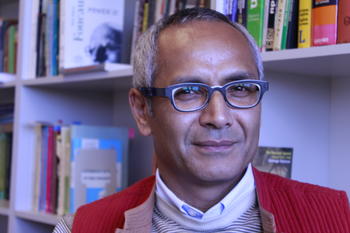Shamil Jeppie

University of Cape Town
Institute for Humanities in Africa (huma)
The Making of a Timbuktu Biographical Dictionary
Biographical dictionaries (tarjamah/tarājim) were compiled in various parts of the Sahara-Sahel since the time of the work in this genre by Aḥmad Bābā (d.1627). There are numerous examples since that time and it has continued into the present.
In this lecture, Shamil Jeppie will look closely at the process by which one scholar in the mid-twentieth century set about producing such a work. Jeppie has been able to locate multiple manuscript versions or extracts of a work by Aḥmad Bul'arāf (d.1955) that reveals significant aspects of his approach to his task. It is a rare insight to how a writer-compiler set about gathering his data and actually organizing his manuscript/s. In the West African Sahelian Islamic context this period might qualify as “early modern” and thus make him suitable for a comparative discussion on Arabic philology in the early modern age.
Shamil Jeppie is Associate Professor at the Department of Historical Studies and, previously, at the Institute for Humanities in Africa (HUMA) at the University of Cape Town. He received his PhD from Princeton University. He has worked on aspects of the social history of Cape Town and Durban, South Africa, and 19th-century Sudan. Professor Jeppie founded The Tombouctou Manuscripts Project in which he explored the formation of a culture of collecting in Timbuktu. His publications include Muslim Family Law in Sub-Saharan Africa: Colonial Legacies and Post-Colonial Challenges, co-edited with Ebrahim Moosa and Richard Roberts (2010), The Meanings of Timbuktu, co-edited with Souleymane Bachir Diagne (2008), and Language, Identity, Modernity: The Arabic Study Circle of Durban (2007).
Shamil Jeppie is a member of the editorial board of Philological Encounters (Brill).